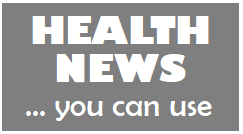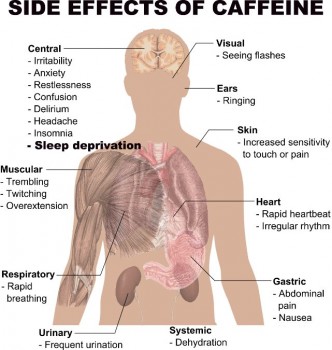Reading beyond the headlines: How much coffee is really healthy?
By Jacqueline Howard
Is coffee safe or risky for your heart? Two recent studies appear to contradict each other on this question, which often leaves coffee-lovers scratching their heads.
A study presented at the British Cardiovascular Society conference in June 2019 suggests that drinking five cups of coffee a day was no worse for the arteries than drinking less than a cup.
The study of more than 8,000 people across the United Kingdom also found that even those who drank up to 25 cups a day were no more likely to experience stiffening of the arteries than someone drinking less than a cup a day.
A cup of joe can come with some health benefits, as it contains antioxidants and has been associated with living longer, but some other studies suggest that overloading on coffee can put your heart health at risk.
Recent research found that heavy coffee consumption, measured as six cups per day, may be associated with a moderate increase in cardiovascular disease risk compared with the risk in those who drink less.
 “In nutrition, it is always expected that there is a threshold above which increasing intakes are no longer beneficial, and this is what we saw here,” Elina Hypponen, study co-author and director of the Australian Centre for Precision Health at the University of South Australia Cancer Research Institute, wrote in an email.
“In nutrition, it is always expected that there is a threshold above which increasing intakes are no longer beneficial, and this is what we saw here,” Elina Hypponen, study co-author and director of the Australian Centre for Precision Health at the University of South Australia Cancer Research Institute, wrote in an email.
“The best practice appears to be that of sticking to moderation,” she said.
The study, published in March in The American Journal of Clinical Nutrition, included health data on long-term coffee consumption and cardiovascular disease among 347,077 adults in the United Kingdom.
The data was collected in 22 centers between 2006 and 2010 as part of the UK Biobank. It featured self-reported information on how many cups of coffee the subjects drank each day, and the incidence of cardiovascular disease was measured.
Information on each adult’s cardiovascular health came from hospital inpatient records and mortality records, Hypponen said in an email.
The subjects were grouped into seven categories: those who didn’t drink coffee, those drinking decaffeinated coffee and those drinking caffeinated coffee. The latter group was further divided by how many cups they drank each day, on average.
The researchers found that, when compared with those who drank one or two cups a day, the odds of cardiovascular disease were 11% higher among adults who did not drink coffee, 7% higher among those who drank decaf and a whopping 22% higher among those who drank more than six cups per day.
“Readers may be surprised by the slight elevation in risk for those who did not drink any coffee or chose decaffeinated coffee,” Hypponen noted.
 “Coffee contains caffeine which is a stimulant. Caffeine administration in clinical trials has been shown to increase sympathetic nervous system activity and blood pressure, and in simple terms, excessive coffee intakes can make your heart work harder,” Hypponen said.
“Coffee contains caffeine which is a stimulant. Caffeine administration in clinical trials has been shown to increase sympathetic nervous system activity and blood pressure, and in simple terms, excessive coffee intakes can make your heart work harder,” Hypponen said.
“Anything that makes your heart work harder through that type of mechanisms, whether it would be stress or excessive coffee consumption, can be bad for your heart, especially if this continues over long periods of time,” she said. “Some types of coffee which are produced without filtering also contain cafestol, which raises the blood LDL cholesterol and can affect cardiovascular disease risk through related mechanisms.”
LDL is considered “bad” cholesterol, as high levels raise risk of heart disease and stroke.
The study had some limitations, including that the data on coffee consumption was self-reported and did not specify the size of the cup of coffee drunk. Additionally, the findings cannot be generalized outside the population of people who habitually drink coffee.
People also tend to self-regulate their coffee intake based on various factors, such as health concerns or pregnancy.
Overall, there has been a history of medical flip-flops on how coffee may affect your health, with some studies finding benefits and others warning of risks.
For instance, “one previous study shows that moderate but not heavy coffee consumption could have cardiovascular benefit,” said Dr. Nieca Goldberg, a cardiologist and medical director of the Joan H. Tisch Center for Women’s Health at NYU Langone Health in New York, who was not involved in the new study or the older one.
Preliminary research presented at the American Heart Association’s Scientific Sessions in 2017 suggested that coffee may be tied to reduced risk of heart failure and stroke. A 7% decreased risk of heart failure and 8% decreased risk of stroke was found to be associated with every increased cup of coffee consumed per week.
So “studies are all over the place,” said Goldberg, a volunteer expert with the American Heart Association.
“My thoughts about coffee and increasing heart disease risk are, I think the data we have so far is not enough to tell people to stop drinking coffee,” she said. “Coffee is probably safe as long as you’re not a heavy drinker.”
_________________________________
Credit: CNN.com




















